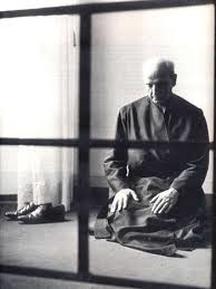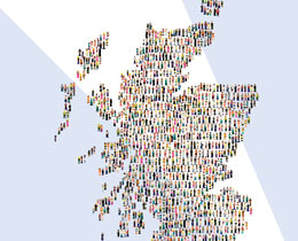
Mindfulness has now become main stream in medicine, education, prisons, business even. In fact it’s become a business in itself. Courses can cost quite a lot of money; people can do degrees in it and then a teacher training course to teach it! I even know a Buddhist monk who did such a course – even though he had probably been living mindfully for all of his religious life. It’s a symptom of the world we live in where paper qualifications are sometimes valued over experience and people feel they haven’t achieved anything without a qualification of some sort. It’s the same with spiritual direction. Once on retreat I was encouraged by a spiritual director to get involved in spiritual direction and when I mentioned the need to do a course he said I was too intelligent to believe that. Whether that statement was true or not I do feel that there is a bureaucratisation and secularisation of religious practices going on. Do they need to conform to the ways of the world where there is a price on everything? I do realise of course that if someone is offering a course and a service for which they are being paid then it’s important to know that they are qualified and capable of doing what they are advertising. In the past people would have sought out individuals whom they trusted as having lived and experienced mindfulness and meditation. But maybe it’s not so easy to find these people today – and so easier to do a course on it.
In the past meditation and mindfulness practice would have been taught within the context of a religious faith. Buddhism and Hinduism, the religions of the east, are particularly associated with it but it’s to be found in all religions though I think it’s true that Buddhism has helped Christianity rediscover this tradition, which is not always obvious in formal institutional Church worship. Today there are meditation groups in Christian churches that are teaching people to meditate within the context of Christian faith and mindfulness resonates with what in Catholicism is called ‘ the sacrament of the present moment’. The aim of this is different, as you would expect, from Buddhist meditation and from its secular counterpart. For Christians, or at least for this Christian, even when I’m sitting still and silent, attending to the breathing, letting go of distractions, meditation is to be aware of the gift of the life force that courses through my veins, to be open to the power of love, compassion, healing. I cannot meditate without being aware of my relationship to the Transcendent, to the Source of Life and Love, the Ground of Being, to God in other words though the word God more often obscures Reality than it reveals it. In meditation I feel called into the adventure of life – and sometimes it needs courage to embrace that.
For Buddhists meditation is more about watching the mind, observing how erratic it is, recognising the games it plays on us when we get caught up in our imagination and take our perceptions for reality. We all know how our mind can run riot and have us imagine disastrous scenarios, how judgemental it is, how critical and negative, how difficult it is to slow it down never mind let it rest in peace. Buddhists talk about monkey mind and in the West at least we are trained to think, evaluate, discriminate, jump from one thing to the other from the moment we enter the education system so it’s no wonder that some Buddhist think that it’s more difficult for westerners to meditate because we are going against our conditioning. And it’s also no wonder that many people are looking to meditation and mindfulness as a way of finding peace in what for all of us can be a chaotic and troubled world.
There is no doubt that mindfulness and meditation have become very popular and fulfil a need or desire for peace in people of all ages and from all walks of life. The meeting I was at this week was free – no money involved though it was possible to make a donation. It happens weekly and has been happening for many years. The leader has been practising it for decades and has come from a Zen background. It was very well attended and the format was simple – a half hour talk about how our mind can lead us down the path of negativity and then a body scan for half an hour in which we were imaginatively guided to relax each area of our body. It was a half hour of relaxation, a time to set aside worry and anxiety and it was obvious that people left feeling uplifted and energised by it. And it had nothing to do with religion – supposedly. No creed was preached to set up any conflicts about belief but it did have a spiritual message about well-being and care which people responded to. Perhaps those followers of religion who are worried about its demise need not be and perhaps this way of pursuing spirituality will lead some people at least to seek for meaning and even return to religion to find it.



 RSS Feed
RSS Feed
